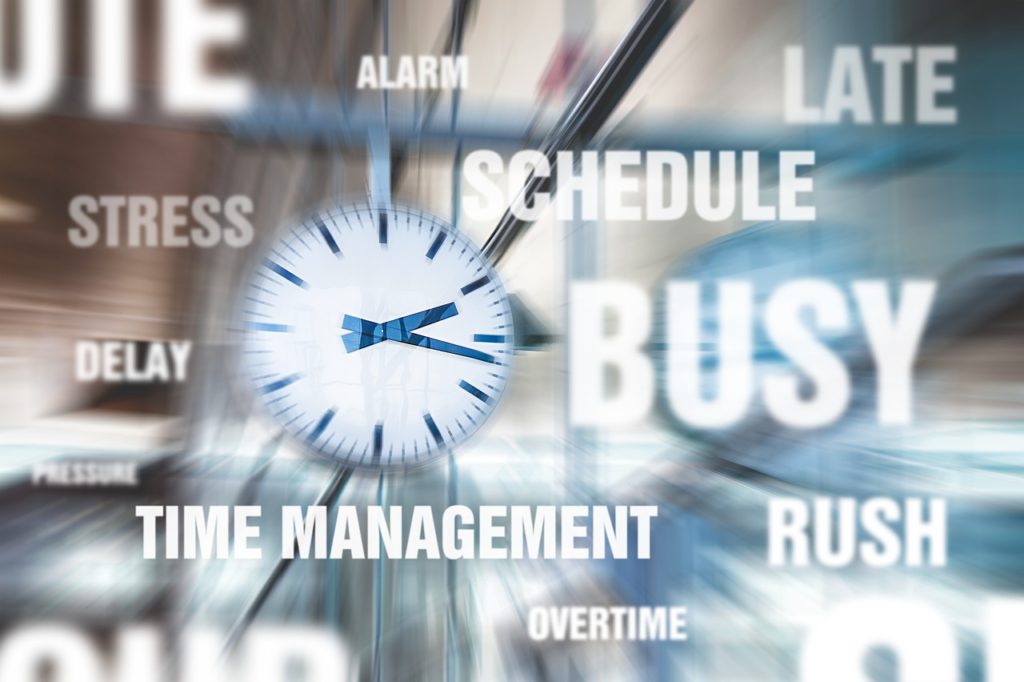
Individuals with ADHD can have a great deal of difficulty with time. This includes periodic lateness for appointments and meetings, underestimating the time a task will take, and becoming hyperfocused on activities and losing track of time..All of which can mean missed deadlines, and failing to meet personal and professional commitments.
The Components of Time Insensitivity
Dan Duncan, an ADHD coach and consultant, explains that this insensitivity to time or “time blindness” typically has three components:
Altered Chronology – This factor is how we process events in time. A non-ADHD brain tends to order upcoming events in sequence and see each event as a separate entity with a specific time and date, and chunks of time between events. The ADHD brain tends to lump events into “now” and “not now.” All the “not now” events get grouped together as one lump with no blocks of time in between.
Poor time estimation – Having ADHD can make even familiar and repetitious tasks seem like a whole new adventure each time they are performed. (This can be due to the competing forces of distraction and hyperfocus.) This can make an individual with ADHD confident that they know how long tasks will take, but estimating time turns out to be more a matter of chance.
Anxiety – Because upcoming tasks get lumped into “now” and “not now,” ADHD individuals tend to procrastinate and then quickly become overwhelmed when the time comes to do the “not now” tasks and they realize what they have ahead of them. This can cause anxiety and a retreat into the safety of a favorite distraction.
Strategies for Managing Time Insensitivity
Natalia van Rikxoort, MSW, ACC a social worker, ADHD consultant, and certified life coach offers these strategies to help manage time insensitivity.
Get visibility on your time – To gain control of your time and use it effectively, use visual tools like calendars, clocks, and timers. Calendars and planners with weekly or monthly layouts provide a good overview of your time, allow you to see how much time you have and where different tasks, appointments, and commitments fall in a chronological sequence. Keep clocks in every room, including the bathroom, to help you remain mindful of the time as you go about your day. Using timers is another way to help keep you on track and ensure you don’t spend more time on a task than you intended.
Consciously overestimate the time you think you will need by a factor of 3 – If you are not sure how much time to allot for a certain task, triple the amount of time you think you will need. For tasks that you do regularly, track how long it takes you to do them when you are not in a hurry. That will give you a good benchmark for how much time you need to do the routine things.
Focus on departure time, not arrival time, for appointments – Instead of focusing on when you need to be at work or an appointment, shift your attention to the time you have to leave. This will help you consider the time needed to get to where you are going and avoid the mistake of believing you have more time than you actually do.
Add in time for transitions – An aspect of our daily routines that often goes unnoticed are transitions – e.g., transitioning from your home to the car; walking from your car to your office; ending one task to begin another. Transitions require time and must be accounted for when planning your day. In addition to your commute to work, you will need to give yourself adequate time to get in your car, gather your things when you arrive, and walk from your car to your office.
Be aware of hyperfocus – Hyperfocus is a state of intense focus and engagement during which time is likely to quickly slip away from you. Become aware of those tasks and activities you have a tendency to get lost in and make a point to refrain from engaging in them when you are in a time crunch.
If you have ADHD, time insensitivity can create many problems. But it doesn’t have to. Gaining an understanding of time insensitivity and having strategies to manage it can help you manage your activities, be more productive and keep your commitments.


